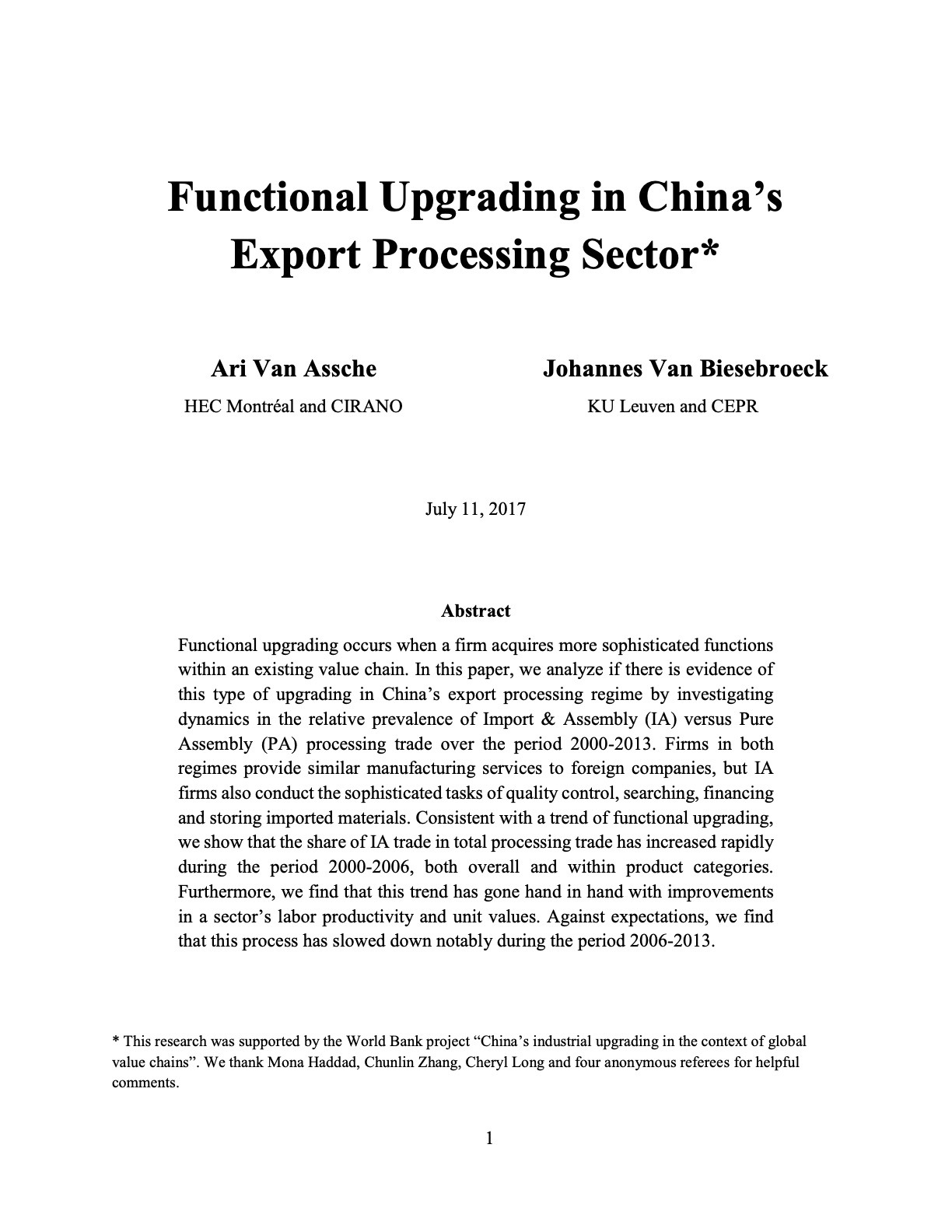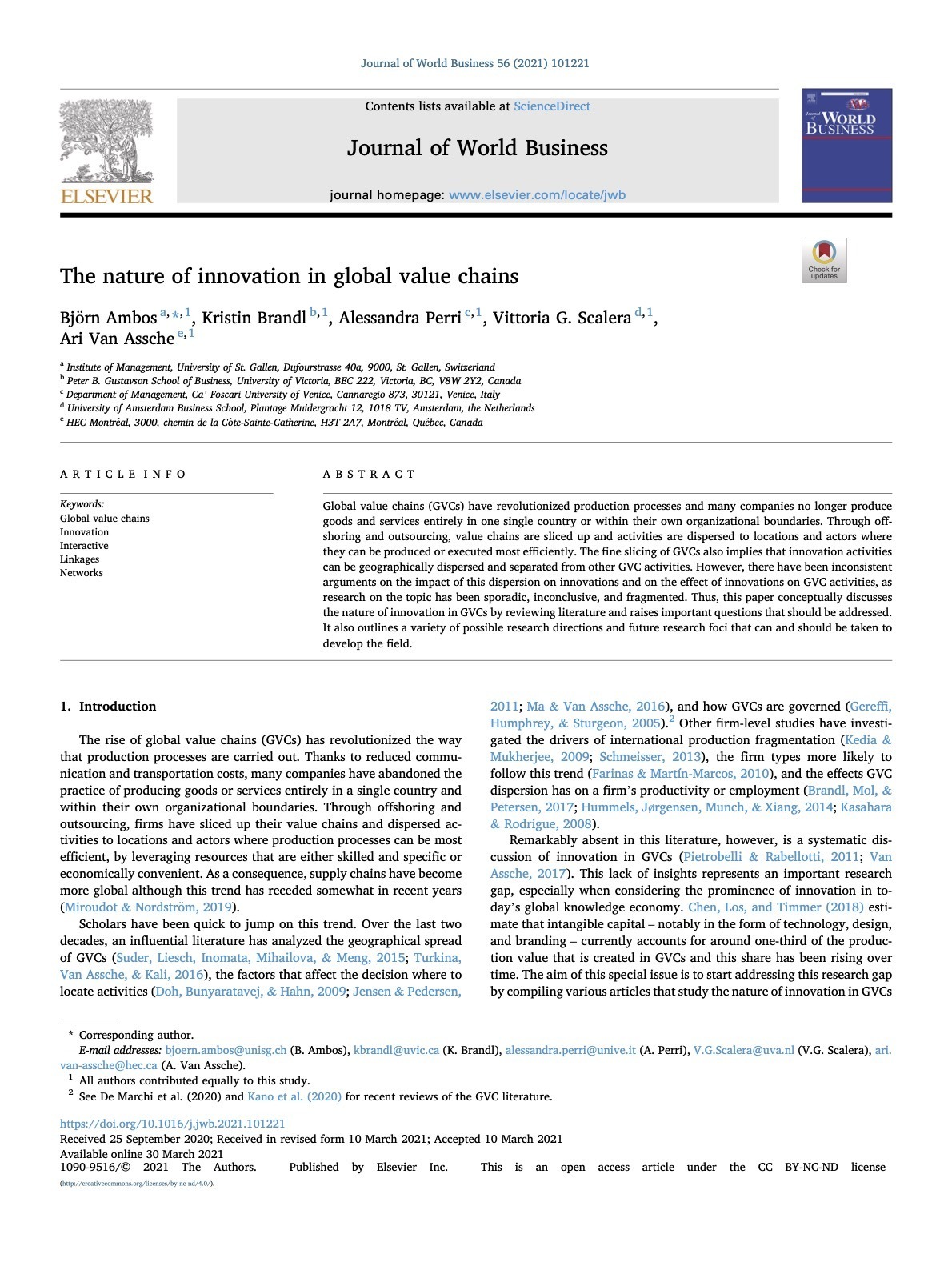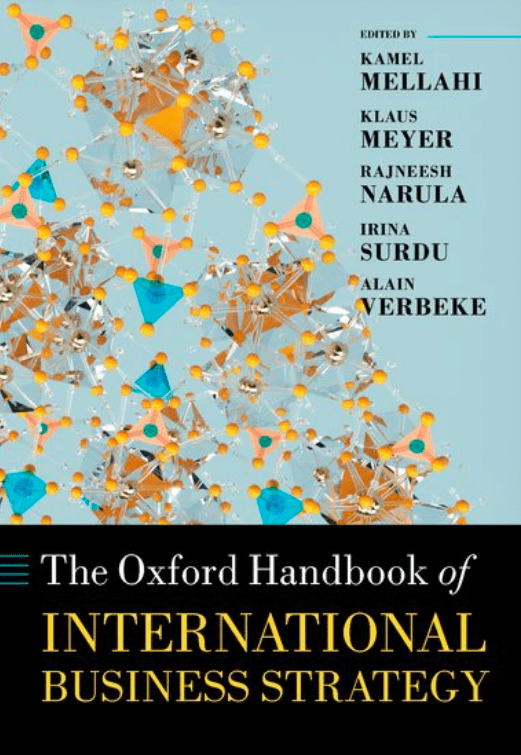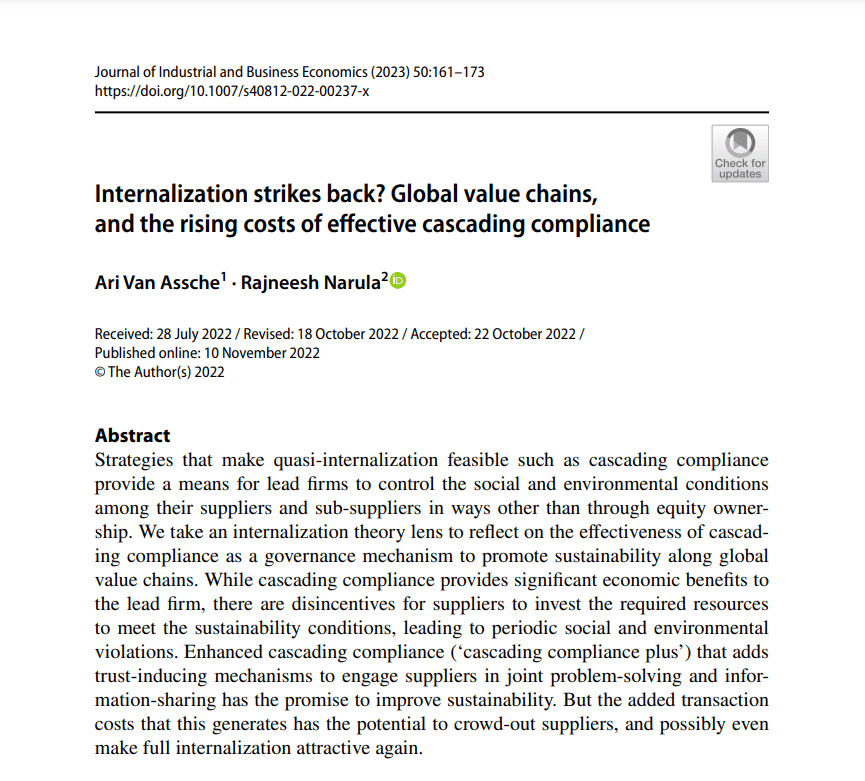︎

Ari Van Assche
HEC Montréal
Ari Van Assche is Professor of International Business at HEC Montréal, deputy editor of the Journal of International Business Policy, and co-founder of the International Institute of Economic Diplomacy. His research focuses on the organization of global value chains and their implications for international trade, industrial clusters and public policy.
MORE ABOUT ARI VAN ASSCHE >Jan 1, 2018
Ari Van Assche, Johannes Van Biesebroeck
Functional upgrading in China’s export processing sector
Functional upgrading occurs when a firm acquires more sophisticated functions within an existing value chain. In this paper, we analyze if there is evidence of this type of upgrading in China's export processing regime by investigating dynamics in the relative prevalence of Import & Assembl...

Jan 1, 2021
Björn Ambos, Kristin Brandl, Alessandra Perri, Vittoria G. Scalera, Ari Van Assche
The nature of innovation in global value chains
Global value chains (GVCs) have revolutionized production processes and many companies no longer produce goods and services entirely in one single country or within their own organizational boundaries. Through offshoring and outsourcing, value chains are sliced up and activities are dispersed to loc...

Jan 1, 2020
Anthony Goerzen, Ari Van Assche
Global value Chain Governance: A Multinational Enterprise Capabilities View
The drivers of economic globalization are leading many firms to disaggregate and redistribute their operations by outsourcing and offshoring. The result of the process is to create global value chains (GVCs) that are a collection of loosely affiliated, spatially distributed firms engaged in bringing...

Nov 19, 2022
Ari Van Assche, Rajneesh Narula
Internalization strikes back? Global value chains, and the rising costs of efective cascading compliance
Strategies that make quasi-internalization feasible such as cascading compliance provide a means for lead firms to control the social and environmental conditions among their suppliers and sub-suppliers in ways other than through equity ownership. We take an internalization theory lens to reflect on...

